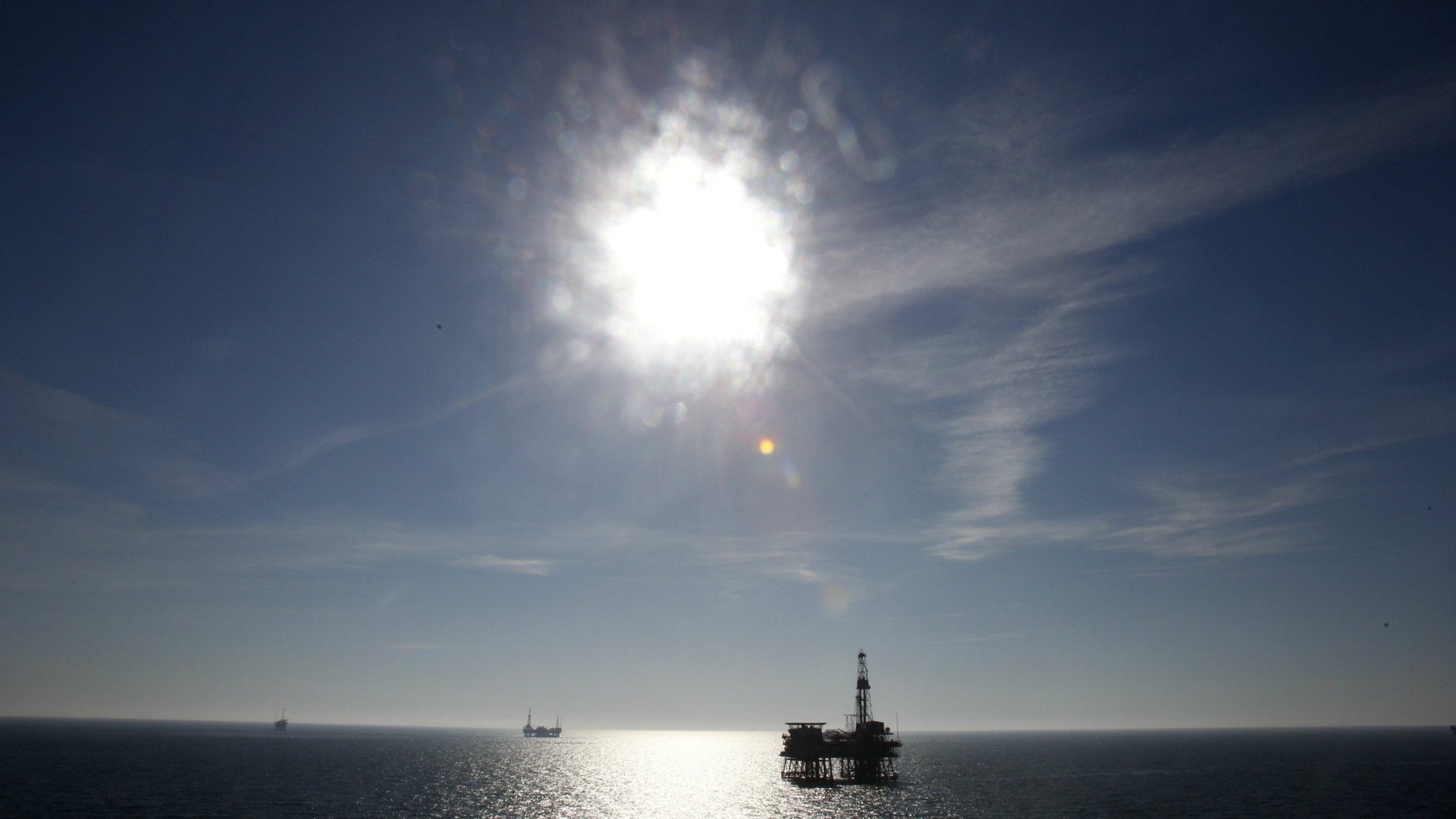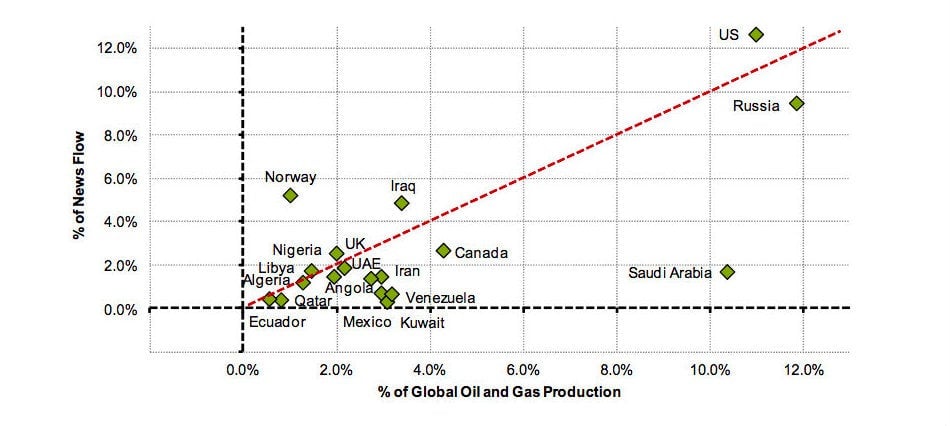While news outlets fixate on the US shale boom, oil troubles loom in these eight countries and beyond
Violence in Egypt and supply disruptions elsewhere in Africa have sent oil prices to a five-month high, but worse may be ahead because of events in places that are not even currently in the headlines.


Violence in Egypt and supply disruptions elsewhere in Africa have sent oil prices to a five-month high, but worse may be ahead because of events in places that are not even currently in the headlines.
They are part of a geography of “structurally under-covered” nations, places where reporters rarely go and foreign companies do not speak, but that could have an outsized impact on oil prices, according to a new study by Sanford Bernstein, the equity research firm.
In a study of 10,000 news stories and company news releases over the last five years, Bernstein found that when it comes to the oil-producing world, we hear mostly about nations all-but unsusceptible to supply disruption: the US and Russia, which combine to make up about 23% of the news flow. When you add Norway and the UK to the US and Russia, more than 30% of energy news and company press releases provide almost no illumination of supply-side risk, says Bernstein.
Bernstein is especially worried that, were there to be symptoms of trouble, we might not hear any “early warning signals” from places such as eight OPEC countries that supply a full quarter of the world’s oil supply. These eight—Angola, Ecuador, Iran, Kuwait, Qatar, Saudi Arabia, the United Arab Emirates and Venezuela—account for a combined total of just 7.5% of the energy stories and press releases in the study. Look at the chart below.

Bernstein points out a potential new trend of government intervention in Africa after a recent decision by Chad to suspend the work of the China National Petroleum Corporation and Gabon’s seizure of an oilfield from China’s Addax Petroleum. Oil theft in Mexico is up, and Russia’s Rosneft appears to be moving in as BP loses favor in Azerbaijan, yet we read little about it.
”The hidden risks to oil markets potentially lie in the countries that are the most opaque,” Bernstein says. The links in the above paragraph show that events in these countries do get some coverage, but Bernstein’s Oswald Clint says it is neither the quantity nor the quality to sufficiently inform the market. “Stories with slightly tenuous links to potential outages are ignored,” he told Quartz.
Bernstein’s inclusion of Iran in the geography of under-covered countries may baffle those who see and hear of the country almost every day. But Clint says the volume of coverage does not help when it is almost solely about the nuclear standoff with the West. “[There is] much less about production capacity, reservoir maintenance, new fields being developed etc., all of which is needed to understand the oil markets,” he said.
The situation does not appear likely to improve soon. Companies do not ordinarily put out press releases when they face trouble since that can impact their share price. And the economics do not favor the posting of more journalists in the undercovered countries. As for those already there, they are “competing to be heard in a smaller paper circulation market and larger traffic dependent online market,” Clint said.